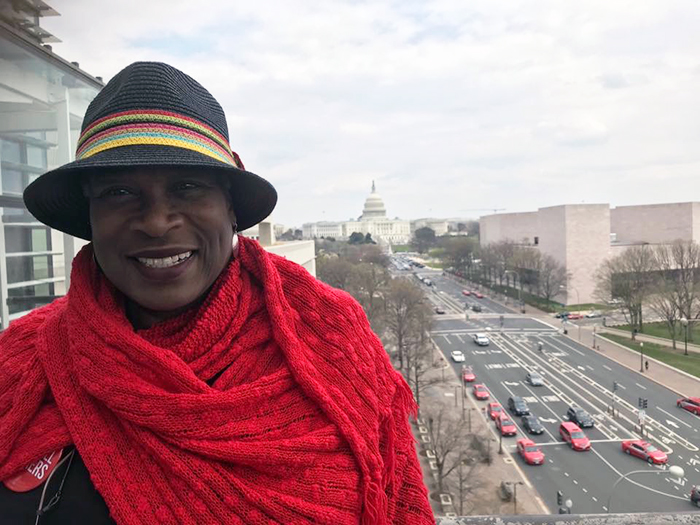Humanitarian spirit
 Patricia Ice brings empathy as well as skill and insight gleaned from her life's experiences to her practice of immigration law with an emphasis on family and humanitarian cases.
Patricia Ice brings empathy as well as skill and insight gleaned from her life's experiences to her practice of immigration law with an emphasis on family and humanitarian cases.
A 1979 graduate of Wayne State University Law School, Ice is a Detroit native. Today, she is director of the legal project for the Mississippi Immigrants Rights Alliance, a nonprofit organization working to improve laws and public policy affecting immigrants and working people of color. She advocates for clients and often gives presentations to a variety of community groups.
After earning a history degree from Spelman College in Georgia, she entered law school in her hometown.
"When I entered law school at age 22, my only idea was to become a professional and work for myself," Ice said. "It took me 13 years after I graduated law school to figure out how I was going to use my law degree."
She worked for a small law firm in Nevada, where her parents had moved, then came back to Detroit and worked with Wayne County Neighborhood Legal Services, and then for the city of Detroit corporation counsel's Water and Sewerage Section. Still searching for the right fit, she joined the Peace Corps in 1983, and taught English and history in the Republic of Benin in West Africa for two years, and then worked for a few years as a Peace Corps recruiter in Detroit.
In 1987, she went back to school at Ohio University in Athens, and earned a master's in linguistics. In 1989 she was an English speaking resource supervisor in a refugee camp in the Philippines. From 1990-91, she worked as the assistant to the dean of James Madison College at Michigan State University. In 1991, she earned a federal teaching grant and taught English in Haiti and Honduras.
In 1992 she took and passed bar exams in Michigan and New Mexico and came home to Detroit.
"I decided I wanted to work with people from other countries and cultures," Ice said. "After doing a little research and deciding I did not want to return overseas to work, I decided to try immigration law. I was 39 at the time, and my legal career was starting really late."
She went on to practice law in a variety of ways, including as an assistant prosecutor, and then earned a master of library and information science degree from WSU in 1997.
"I was offered a job at Mississippi College School of Law Library, and moved there in early 1998," Ice said.
Mississippi was a good place for her, she found, and in 1999, she began to practice immigration law there and never looked back, starting in private practice, and joining the Mississippi Immigrants Rights Alliance Legal Project in 2006.
"I built up my reputation with immigrants and with federal immigration authorities as one of the most knowledgeable immigration lawyers in Mississippi, helping many immigrants and their U.S. families, teaching and training many lawyers, judges and others," Ice said. "I have also learned to converse with my clients in Spanish. I have been in some of their homes and some have been in mine. It has been an interesting and profound experience."
She met her husband, activist and MIRA co-founder William Chandler in 2000, and they married in 2004.
Ice described a recent case she handled, as an example of what continues to fuel her passion for immigration law practice.
"I assisted two female cousins from Central America in navigating the complicated immigration system to obtain asylum," Ice said. "Without the aid of an adult, they left their home country together at age 16 and made the long journey by bus to the United States to escape family and gang violence. After their arrival in Mississippi, they came to live with a relative that they had never met before. I represented the girls in the New Orleans Immigration Court, procured a predicate order for each girl from a Mississippi Youth Court, filed two I-360 applications for them for special immigrant juvenile status, poured through and gathered supporting documents that corroborated their claims, and filed the I-589 applications for asylum."
Those applications were approved in March.
"Next year, the young women will be able to file for lawful permanent resident status, which can eventually lead to U.S. citizenship," Ice said.
The work can be difficult and frustrating at times, and happy endings don't always come about.
"My clients' needs for assistance and my love for people from other cultures, family unification and giving humanitarian aid keep me going," Ice said. "I love my family, and my clients love theirs, too. We all need the basics in life, including love, food, water, shelter, good health and education. I try to put myself in their places. When I do that, I cannot help but help them and stay optimistic for a better future for them and all of us. The hope for positive change in the face of adversity also fuels my passion."